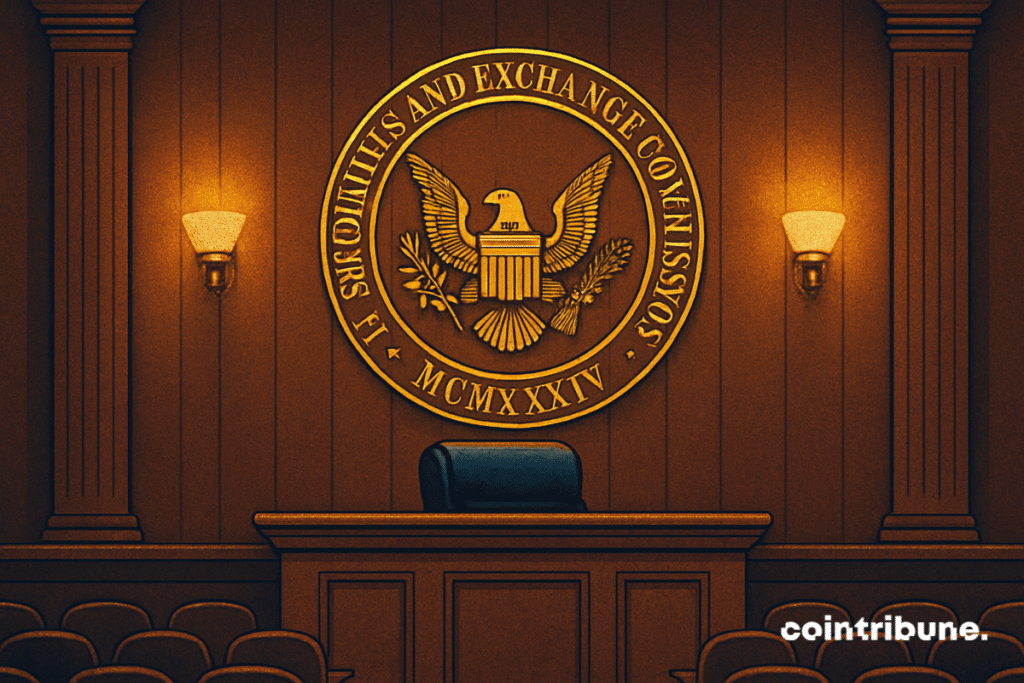SEC Chair Paul Atkins Vows Clarity on Crypto Rules Post-Ripple—Here’s What It Means for Your Portfolio
The SEC is finally stepping out of the legal fog. Chair Paul Atkins just signaled a push for transparent crypto regulation—once the Ripple case dust settles. No more guessing games for exchanges, no more regulatory whack-a-mole for traders. But let’s be real: Wall Street’s old guard will still find a way to drag their feet.
Why This Matters Now
After years of enforcement-by-lawsuit, the SEC seems ready to lay actual groundwork. Clarity could mean smoother institutional adoption—or just another layer of bureaucracy. Either way, crypto’s playing field is about to get less wild west.
The Ripple Effect
XRP’s legal limbo forced the issue. Now every altcoin’s watching: Will clear rules spark a compliance gold rush or expose more ‘utility tokens’ as securities in cheap suits?
Regulators move at the speed of dial-up, but when they finally act? Buckle up.

In Brief
- The SEC has ended its nearly five-year legal battle with Ripple Labs, freeing resources to focus on drafting clear cryptocurrency regulations.
- SEC Chair Paul Atkins and Commissioner Hester Peirce say the agency can now prioritize building a framework that fosters innovation while protecting investors.
- The case’s conclusion comes as Congress debates the CLARITY Act, facing strong partisan division over digital asset legislation.
From courtroom to rulemaking
Last Thursday, both Ripple and the SEC filed to drop their appeals in the Second Circuit Appeals Court and agreed to bear their own costs, effectively ending one of the industry’s most closely watched cases.
SEC Commissioner Hester Peirce called the resolution a “welcome development,” noting that minds once occupied by litigation can now focus on creating robust, transparent policy. SEC Chair Paul Atkins said in response:
With this chapter closed, we now have an opportunity to shift our energy from the courtroom to the policy drafting table. Our focus should be on building a clear regulatory framework that fosters innovation while protecting investors.
XRPUSDT chart by TradingViewThe long-lasting SEC-Ripple case
The SEC sued Ripple in December 2020, alleging it raised $1.3 billion through unregistered sales of XRP as securities. In July 2023, Judge Analisa Torres ruled XRP was not a security when sold to retail investors, but was a security in institutional sales. Ripple was fined $125 million in August 2024.
The case’s conclusion coincides with legislative efforts to pass the Digital Asset Market Clarity Act (CLARITY Act), aimed at defining digital asset market structures and providing regulatory certainty.
Push for the CLARITY Act
Republican lawmakers and the Senate Banking Committee are seeking to pass the bill by Sept. 30, though it faces resistance from leading Democrats.
House Financial Services Committee ranking member Maxine Waters has called the bill “dangerous,” warning it could weaken investor protections. Democrats have also opposed the Anti-CBDC Surveillance State Act, a separate Republican-backed bill aimed at banning a U.S. central bank digital currency. As political debate intensifies, the SEC’s next moves will be closely watched by both lawmakers and the crypto industry.
Maximize your Cointribune experience with our "Read to Earn" program! For every article you read, earn points and access exclusive rewards. Sign up now and start earning benefits.

